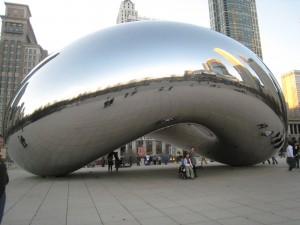This recent article from the BBC discusses how the practice of stranger kidney donations has been increasing in the United Kingdom since it was made legal in 2006. Just to be clear, this refers to kidney donations while the donor is still alive and wherethe donor and recipient don’t know each other. The entire practice seems kind of fascinating to me. Although I carry my donor card around with me and have registered with the National Bone Marrow Registry, I don’t know if I could ever donate an organ to a stranger while I’m still alive.
I wondered who exactly these donors were, what might instill that kind of altruism, and if gender dynamics might play a role. It turns out, according to this article published in Medicine, Health Care, and Philosophy that gender plays a pretty big role in living organ donation. Apparently, women are much more likely to be living organ donors, making up 58% of kidney donors compared to men’s 42%. At the same time, women are less likely to receive a kidney. These statistics can’t be explained by the thinking that maybe more men need kidneys, so their wives donate more often, because women are also more likely to donate to strangers and non-relatives and more likely to donate to their children and siblings, even when the recipient’s male relative (father or brother) is also a match.
According to a 2008 German study (can be downloaded here), women are also much more likely to be in favor of the idea of donating organs than men are, even if they don't have an organ donor card (in pretty much all cases, whether they are living or dead at the time of donation and whether the recipient is either a distant relatives or stranger). Interestingly, women are also much more likely to be disapproving of proposals of financial compensation for organs than men, who approve such proposals by a large majority.

Photo: www.steppingstonesaz.org/
So what makes women so much more willing to donate their organs? We’ve all heard the psychological behavioral studies that show that, in general, women are more empathetic and altruistic than men, and many of these studies are referenced in the first paper linked above. It does seem to me that society tells women that to be successful as women, they must excel at being caregivers, to their children, significant others, and their community at large. It seems that this conditioning could be a large part of why women donate more often. On the flipside, maybe men are prevented from donating as often as women. This could be because they are traditional breadwinners of the family, and therefore don’t think the risk or leave from work required for the surgery is worthwhile. There is also the fact that men are more likely to fear that having an organ donor card could mean that they get inadequate medical care (doctors might not fight so hard to save his life if his organs are desperately needed.)1
What do you think? Would you donate an organ while alive? Would the identity of the recipient influence your decision at all? Do you think your identity as a woman affects your feelings on the issue?
- 1. Thompson T.L.; Robinson J.D.; Kenny R.W. “Gender Differences in Family Communication About Organ Donation.” Sex Roles, Volume 49, Numbers 11-12, 200312 , pp. 587-596(10)


Comments